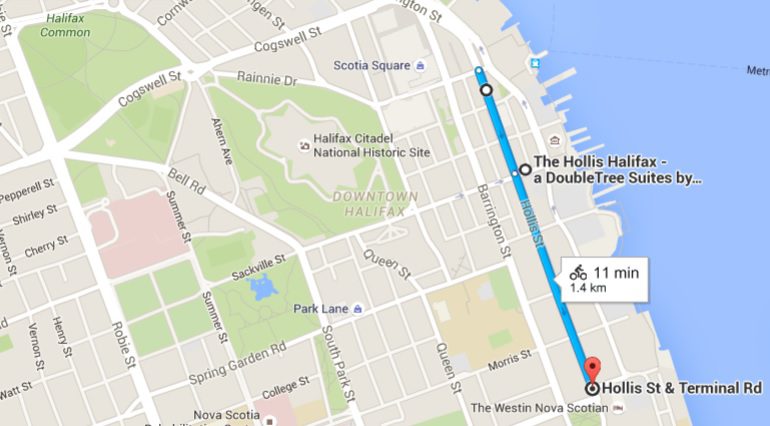With a new year ahead, the Halifax Cycling Coalition looks back on 10 years of uphill momentum
The Integrated Mobility Plan is one of the newest success stories for the young organization.


Over the last decade, the Halifax Cycling Coalition has played a significant role shaping the city’s bike scene, from infrastructure up. Looking back over 2017, and everything achieved thus far during those ten years, there’s plenty of high points to take stock of — and many reasons for Halifax cyclists to look forward to not just 2018, but what other years ahead might offer.
Halifax website thecoast.ca took a bit of that stock itself, noting the significance of the Coalition’s achievements during an “important” year for active transportation in the Nova Scotia city.
Many of the longest-reaching achievements for the organization, first formed in 2007 after the death of 19-year-old cyclist Michael Brooker, have come very recently, thecoast.ca reported. One of those was the approval by the Halifax Regional Municipality of the Integrated Mobility Plan, along with an ambitious, extensive project to lay down a connected grid of bike lanes — similar to projects being pursued by other major Canadian cities — across Halifax and Dartmouth by 2020. Such leaps forward marked a 2017 that was buzzing with momentum, and they were a coming-of-age for a long-time volunteer organization that, in 2016, hired its first full-time staffer.
That staffer was Kelsey Lane — now the organization’s executive director, and, as thecoast.ca reports, “probably Halifax’s best-known bike advocate.”
“I’m more comfortable in the position than when I first started,” Lane, a product of Dalhousie University, told reporters. “I can be a little more bold in my actions now that I know the landscape.”
Lane’s boldness seemed to contribute to a change in the landscape for Halifax cycling, with a new regional council, elected around the same time that Lane was first hired in 2016, suddenly receptive to the concerns of local cyclists. The city found itself open to progress on the cycling front, with long-standing dossiers, some bearing plans that have suffered fits and starts going back to 1999, benefiting from more robust advocacy. Still, progress for the Coalition and its efforts — to elevate cycling as a priority, and to advance active transportation in Halifax — is likely going to involve maintaining the momentum established over the last ten years, pedaling harder all the while.
It’s the input of the organization’s members and allies that makes a difference to Lane, though, considering a hard, uphill grind for her organization. “Anytime you have a bad day, or think things aren’t going your way,” Lane said, “you have hundreds of people behind you and they bring you up with their stories and their experiences.”
As of New Year’s Eve, 2017, those stories and experiences are coming from more than 500 people.
